Your adrenal glands produce hormones such as cortisol and adrenaline, which are strongly associated with stress. When you are constantly under stress, your body is forced to continually produce these hormones and, at times, just can’t always keep up.
Over time, you can start to feel increasingly tired, anxious and unable to get a good night’s sleep. You may start to crave sugar and other stimulants to help keep you going in the short term. Yet, in the long term, you are overwhelmed., exhausted, irritable and just not well. This is known as adrenal fatigue, whose symptoms may include fatigue, body aches, digestive problems, sleep disorders, food cravings and a lack of interest in sex.
-
Adrenal Health
- •
-
Autoimmune Disease
- •
-
Cardiovascular Health
- •
-
Chronic Fatigue Syndrome
- •
-
Chronic Inflammation
- •
-
Depression & Anxiety
- •
-
Detoxification Issues
- •
-
Diabetes
- •
-
Digestive Health
- •
-
Energy Issues
- •
-
Hormonal Imbalance
- •
-
Infertility
- •
-
Overweight / Obesity
- •
-
Thyroid Disorders
- •
-
Adrenal Health
- •
-
Autoimmune Disease
- •
-
Cardiovascular Health
- •
-
Chronic Fatigue Syndrome
- •
-
Chronic Inflammation
- •
-
Depression & Anxiety
- •
-
Detoxification Issues
- •
-
Diabetes
- •
-
Digestive Health
- •
-
Energy Issues
- •
-
Hormonal Imbalance
- •
-
Infertility
- •
-
Overweight / Obesity
- •
-
Thyroid Disorders
- •
What if you had a partner in health?
Our personal, patient-based approach at PIH is backed by science, and delivered by our compassionate and comprehensive care team.
In today’s disease management model of healthcare, doctors and clinicians are often required to take a reactive approach to illness rather than a preventive approach to overall health and wellness. They may rarely see a patient until that patient is sick, and by then, the clock is ticking. They may have 15 minutes or less to diagnose and treat a patient because their waiting room is full of other sick people.
It’s little wonder so many people accept pain, stress, lack of energy or the inability to focus as realities of life. Yet, these are issues that only get worse with age. And when they become too much to bear, patients seek the care of “specialists” who treat each symptom separately with a different medication.
This is not health care. It is sick care.

What we treat...
The immune system is designed to fight anything that invades the body, such as an infection, or even stress. Autoimmune disease is defined as an illness that happens when the body is attacked by its own immune system. This weakens your systems and make it harder to fight back. Your joints may hurt. Your skin may feel itchy. Or you may feel fatigued and weak. Millions of Americans experience an autoimmune disease.
There are more than 80 types of autoimmune diseases, including rheumatoid arthritis, type 1 diabetes, thyroid disease, lupus, psoriasis, multiple sclerosis and celiac disease. They affect millions of Americans.
Heart disease, while still the number 1 cause of death in the country, can often be prevented with a combination of medical and lifestyle changes. Eating whole, non-inflammatory foods, managing stress, turning off the computer once in a while, being active every day, limiting alcohol, maintaining positive personal relationships … these are steps we can all take to keep our hearts happy and healthy. And these measures will also prevent other diseases and conditions, such as diabetes and stroke.
Regular testing for high blood pressure, high cholesterol, diabetes and irregular heartbeat becomes increasingly important as we age. Because traditional cholesterol testing may not be adequate to determine your true risk of heart disease, advanced cardiometabolic testing is often recommended.
Almost everyone feels exhausted from time to time, but if you have been extremely fatigued for more than six months, you may have chronic fatigue syndrome (CFS). Unlike ordinary sleepiness, CFS does not go away after you get some rest. CFS can limit your ability to perform daily tasks and negatively impact your job performance, personal relationships and overall quality of life. Its causes are unknown, but experts believe a combination of factors are often involved, from viral infections to stress.
In addition to fatigue, symptoms may include muscle pain, memory loss or difficulty concentrating, headaches, joint pain, sore throat and tender lymph nodes. CFS is difficult to diagnose and affects people differently. Treatment to relieve and manage symptoms may include exercise and counseling.
Most people experience symptoms of anxiety and depression at some point in their lives. You may feel anxious before making a presentation at work or when interviewing for a job. You may feel sad and fatigued, even hopeless, after a loss or during the winter months. When these feelings persist or get worse over time, it is important to seek medical attention. You may be one of the 42 million Americans with an anxiety disorder or 16 percent experiencing major depression. These two conditions often occur together, and both are treatable.
Treatments vary widely, however, from lifestyle changes to medication. Functional medicine professionals seek to uncover the underlying causes of depression and anxiety rather than simply treating its symptoms. This approach focuses on understanding the whole person and finding ways to balance our minds and bodies, from improving sleep habits and reducing stress, to making dietary changes and increasing movement.
We are exposed to so many dangerous toxins from both internal and external sources that are bodies are not always able to cope. High levels of toxins can damage our DNA and other cells and prevent essential nutrients from being absorbed.
Exposure to high levels of toxins may lead to mood and sexual disorders, a number of skin and digestive problems, difficulty sleeping and other sleep disorders, and aches and pain.
Our bodies remove toxins naturally. Yet we are surrounded by so many environmental toxins that it may not be able to keep up.
More than 20 million people in the United States are living with diabetes, and that number is expected to grow significantly. It is projected that by the year 2020, half of Americans will have diabetes or pre-diabetes. The most common form of the disease is type 2, which mostly affects adults.
Symptoms include blurred vision, excessive thirst, fatigue, frequent urination, hunger and weight loss. Diabetes can lead to light sensitivity or blindness. It can also cause sores and infections on the feet and skin. When untreated, it can even lead to the loss of a limb. It can also lead to nerve damage, digestive problems and erectile dysfunction.
Diabetes can be diagnosed by a urine or blood test to check the sugar level in the blood. While there is no cure for type 1 diabetes, type 2 diabetes can be managed and controlled with lifestyle changes.
Diet and nutrition are at the root of many health problems and conditions. If you are experiencing digestive problems, a good first step to take is to balance the carbohydrates, proteins and antioxidants in your diet. A healthy, balanced diet can help manage or prevent gastroesophageal reflux disease (GERD), food allergies and sensitivities, fatigue, inflammatory bowel disease (IBD), chronic constipation, cardiac disease, Crohn’s disease, ulcerative colitis, migraines, leaky gut syndrome and more.
Maintain a high level of digestive health by eating high-fiber foods and probiotics, drinking more water, managing stress and taking steps to quit smoking or other bad health habits.
When you’re seeking to uncover the cause of low energy and fatigue, a good place to start is at the cellular level. A reduction or loss of function in mitochondria, known as the powerhouses of our cells, can cause excessive fatigue, which is a symptom of almost every chronic disease.
Mitochondria are responsible for 90 percent of the energy needed to sustain life and support the functioning of our organs. They are present in every cell in our bodies. When they start to fail, so, too, do our organs.
As we age, we experience a decrease in mitochondrial function. We can boost our mitochondrial function, and thus our energy, through diet and exercise and, when appropriate, supplementation.
When your hormones are out of balance, you can feel tired and frustrated. And, for some women, that’s just the beginning, Weight gain, sleep disturbances, libido loss, memory loss, vaginal dryness and mood swings are all the result of shifting levels of estrogen and progesterone. A reduction of sugar, sodium, caffeine, MSG and artificial sweeteners can help to ease these symptoms. An increase in vitamins and minerals such as B6, zinc, magnesium, omega-3s and calcium can help as well.
Many women report that progesterone supplements can ease most if not all of their negative symptoms. Among women seeking hormone replacement therapy, bioidentical hormone replacement therapy is the most popular, due to its safety and efficacy.
Infertility is defined as the failure to conceive after a year of trying, or having multiple miscarriages or stillbirths. It is common, perhaps increasingly so in recent years, with about 10 percent of women between the ages of 15 to 44 unable to get pregnant after a year, according to the Centers for Disease Control and Prevention.
Infertility in women is linked to hormonal imbalances and polycystic ovarian syndrome (PCOS), among other conditions. Yet infertility is not just a woman’s problem. About one-third of cases can be traced back to the man. Both sexes benefit from lifestyle changes to improve their fertility, such as limiting alcohol, reducing exposure to toxins, eating a balanced diet, maintaining a healthy weight, getting regular exercise and managing stress.
Being overweight or obese is one of the greatest threats to our health and increases our risk of heart disease, diabetes, high blood pressure, high cholesterol, stroke, cancer, depression, arthritis and joint pain, and sleep disorders, among other medical conditions. Overweight is described as having a body mass index (BMI) greater than 25. Obesity is described as having a BMI of 35 or more.
Maintaining a healthy weight is a challenge for many people today. In addition to a poor diet and lack of exercise, a number of factors contribute to obesity, including sleep problems, medication, and thyroid disorders. A combination of lifestyle and behavioral changes are usually the first line of defense when treating individuals who are overweight or obese.
The thyroid gland, located at the base of the neck, regulates many processes in your body and plays an important role in the way your metabolism functions. If your thyroid produces too little hormone, your metabolism becomes sluggish. This is hypothyroidism. Too much thyroid hormone production results in hyperthyroidism. Symptoms of hypothyroidism range from feeling tired and run-down, to weight gain and hair loss. Symptoms of hyperthyroidism are just the opposite—feeling hyper, anxious and restless.
Most thyroid problems can be managed if they are diagnosed correctly. Conventional testing may begin and end with a thyroid-stimulating hormone (TSH) test. Functional medicine practitioners often take it further, testing for gluten intolerances, vitamin and mineral deficiencies, food allergies and environmental exposures.
Custom Care Starts Here



Patient success stories...
I traveled from out of state just to be treated at Princeton Integrative Health specifically, and it was so worth it. Dr. Vinny and the entire team are spectacular. I went from nonfunctional to being able to work within weeks. I had an accident while I was on a vacation, and I needed to access very specific treatment right away to mitigate the long term effects. Even though I myself am a functional medicine doctor, when I need someone to take care of me, I only see the best of the best. I called on a Thursday night and I was seen on Monday because they knew time was of the essence. That’s 5-⭐️ service. It’s rare to find so many cutting edge treatments in one place. If you’re struggling with your health.. don’t waste any time, a trip here will literally save your life.
Liana R.
The entire staff of Princeton Integrative Health are so caring and kind. They’ve helped me overcome the most difficult health challenge and treated me for a bacterial infection from a tick bite. I have my life back! When I first came here, I had spent 18 months going in circles with conventional medicine and no answers for what was wrong with me. I was so fatigued and weak and using a walker at only 33 years old. Within a month of being at PIH, they had an answer for me and started me on treatment immediately! 8 months later, I’m no longer using a walker and back to work full time after being out for 21 months. I can now play with my two little kids again and go on walks with them and feel back to my old self! I owe my health to their expertise and compassion and commitment! There were times throughout the process that I began to doubt full healing but they kept encouraging me along the way and said to just be patient. Now I can say, without a doubt, that it was all worth it and I am healed!
Amanda M.
Princeton Integrative Health gave me my life back. After a decade of debilitating symptoms from Lyme disease, I finally found hope here. Dr. Leonti listened to my health journey and validated me after years of mainstream doctors and testing found nothing wrong with me. After a very brief time following the treatment plan and supplements that Dr. Leonti started me on, my symptoms began to decrease, some even disappearing completely! The entire staff here is so friendly, helpful, and supportive. I also really appreciated the free consultation before I started with them. They didn’t try to convince me of anything or push any services. They simply heard me out and gave me information and options to go from there. Everything about this place and these people has been completely positive!”
Jeni R.
City, State (Or Other)
